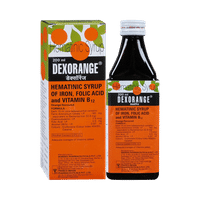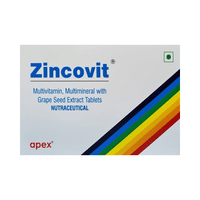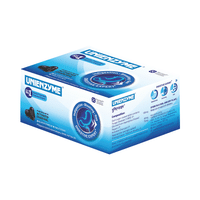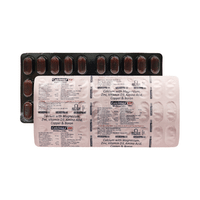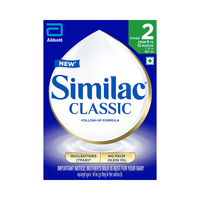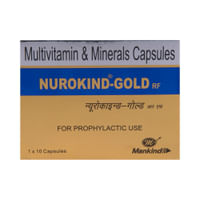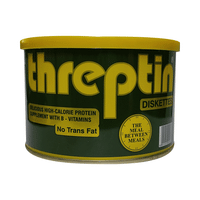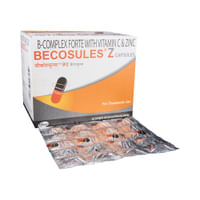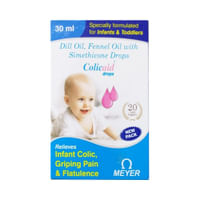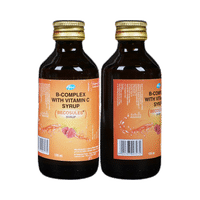Composition FOR Cucold
Caffeine(25mg),Cetirizine(5mg),Nimesulide(100mg),Paracetamol(325mg),Phenylephrine(5mg)food interaction for Cucold
alcohol interaction for Cucold
pregnancy interaction for Cucold
lactation interaction for Cucold
food
alcohol
pregnancy
lactation
Cucold Tablet is to be taken with food.
This will help to avoid stomach upset.
None
This will help to avoid stomach upset.
None
CAUTION
It is unsafe to consume alcohol with Cucold Tablet.
UNSAFE
Cucold Tablet is unsafe to use during pregnancy as there is definite evidence of risk to the developing baby. However, the doctor may rarely prescribe it in some life-threatening situations if the benefits are more than the potential risks. Please consult your doctor.
CONSULT YOUR DOCTOR
Information regarding the use of Cucold Tablet during breastfeeding is not available. Please consult your doctor.
CONSULT YOUR DOCTOR
SALT INFORMATION FOR Cucold
Caffeine(25mg)
Uses
Caffeine is used in the treatment of apnea of prematurity. It reduces the number of episodes of interrupted breathing in premature newborns.
How it works
Caffeine is a stimulant which works by blocking the action of certain natural substances (adenosine and phosphodiesterase).
Common side effects
Restlessness, Increased heart rate, Increased production of urine
Cetirizine(5mg)
Uses
Cetirizine is used in the treatment of allergic eye disease, nasal allergy symptoms, allergic conditions, sneezing and runny nose due to allergies and allergic skin conditions.
How it works
Cetirizine is an antihistaminic medication. It treats allergy symptoms such as itching, swelling, and rashes by blocking the effects of a chemical messenger (histamine) in the body.
Common side effects
Headache, Constipation, Sleepiness, Fatigue, Vomiting, Dryness in mouth, Diarrhea, Agitation, Paresthesia (tingling or pricking sensation), Itching, Rash, Weakness, General discomfort, Hypersensitivity, Increased appetite, Vertigo, Tachycardia, Convulsion
Nimesulide(100mg)
Uses
Nimesulide is used for fever and pain relief.
How it works
Nimesulide is a non-steroidal anti-inflammatory drugs (NSAID). It works by blocking the release of certain chemical messengers that cause pain and inflammation (redness and swelling).
Common side effects
Nausea, Itching, Diarrhea, Flatulence, Dizziness, High blood pressure, Anemia (low number of red blood cells), Hypersensitivity, Breathlessness, Vomiting, Gastrointestinal bleeding, Gastrointestinal ulcer, Skin eruptions, Fulminant hepatitis (viral infection of liver), Low blood platelets, Stevens-Johnson syndrome, Renal failure, Increased liver enzymes
Paracetamol(325mg)
Uses
Paracetamol is used for pain relief and fever. It is used to relieve pain in conditions like headache, muscle pain, or dental pain.
How it works
Paracetamol is an analgesic (pain reliever) and anti-pyretic (fever reducer). It works by blocking the release of certain chemical messengers that cause pain and fever.
Common side effects
Hallucination, Abnormal vision, Hypoglycemia (low blood glucose level), Sterile pyuria, Liver toxicity, Headache, Constipation, Itching, Nephropathy, Hypersensitivity, Platelet disorders, Confusion, Depression, Hemorrhage, Insomnia (difficulty in sleeping), Nausea, Vomiting
Phenylephrine(5mg)
Uses
Phenylephrine is used in nasal congestion, common cold, uveitis, pupil dilation, conjunctivitis and eye Irritation.
How it works
Phenylephrine is a decongestant. It works by narrowing the small blood vessels which provides temporary relief from inflammation (redness and swelling) and discomfort.
Common side effects
Nausea, Vomiting, Headache, High blood pressure, Arrhythmia (irregular heartbeats), Blurred vision, Breathlessness, Itching, Restlessness, Reflex bradycardia, Excitation, Epigastric pain, Neck pain, Tremors, Hypertensive crisis, Eye pain, Stinging in the eyes, Photophobia, Conjunctival sensitivity, Preterm and low birth weight infants, Fainting, Myocardial infarction, Subarachnoid hemorrhage
SUBSTITUTES FOR Cucold
95 Substitutes
95 Substitutes
Sorted By
 Rs. 65.79pay 91% more per Tablet
Rs. 65.79pay 91% more per Tablet Rs. 42.19pay 34% more per Tablet
Rs. 42.19pay 34% more per Tablet Rs. 52.50pay 63% more per Tablet
Rs. 52.50pay 63% more per Tablet Rs. 36.56pay 16% more per Tablet
Rs. 36.56pay 16% more per Tablet Rs. 42.94pay 36% more per Tablet
Rs. 42.94pay 36% more per Tablet
Expert advice FOR Cucold
- Caffeine helps in the treatment of interrupted breathing in premature babies.
- It is given by mouth or via a gastric feeding tube by a doctor or nurse.
- If you are breast-feeding while your infant is treated with Caffeine, do not drink coffee or take any other high caffeine product as caffeine passes into breast milk.














